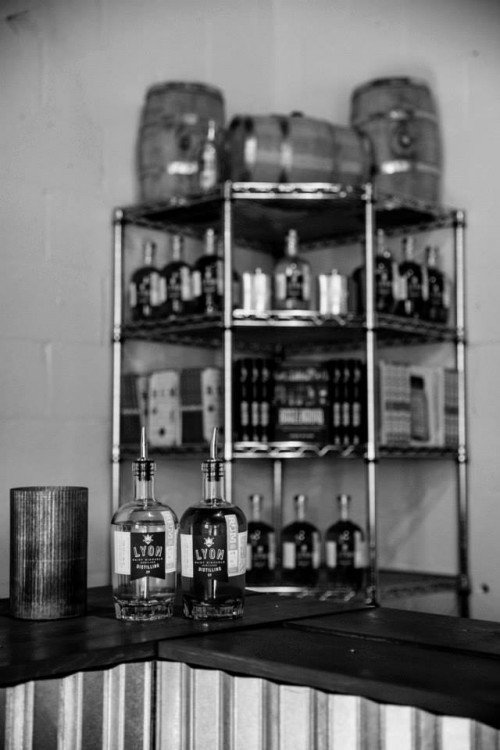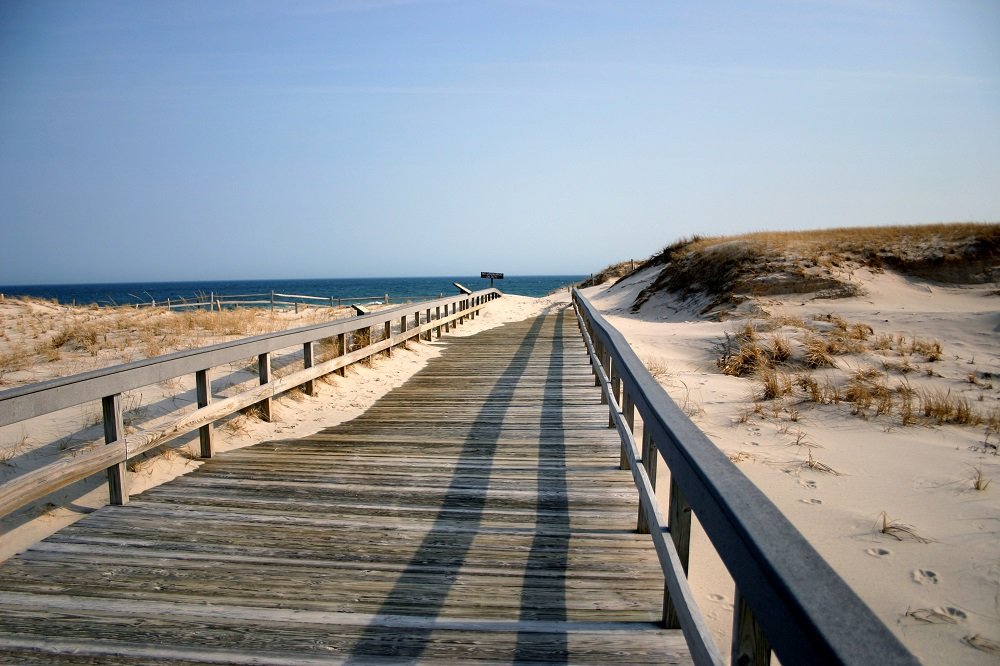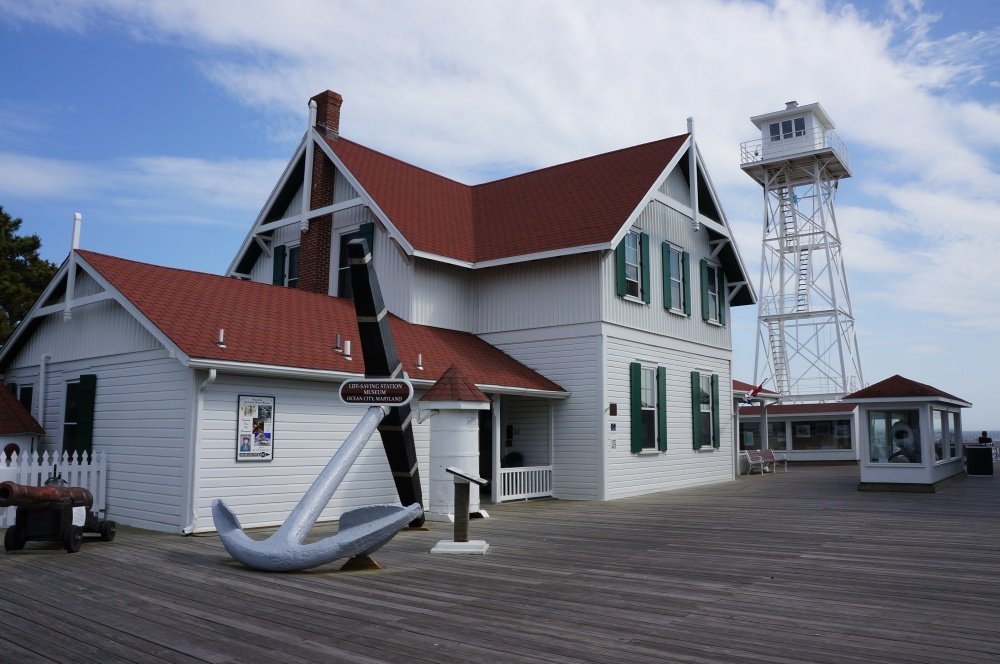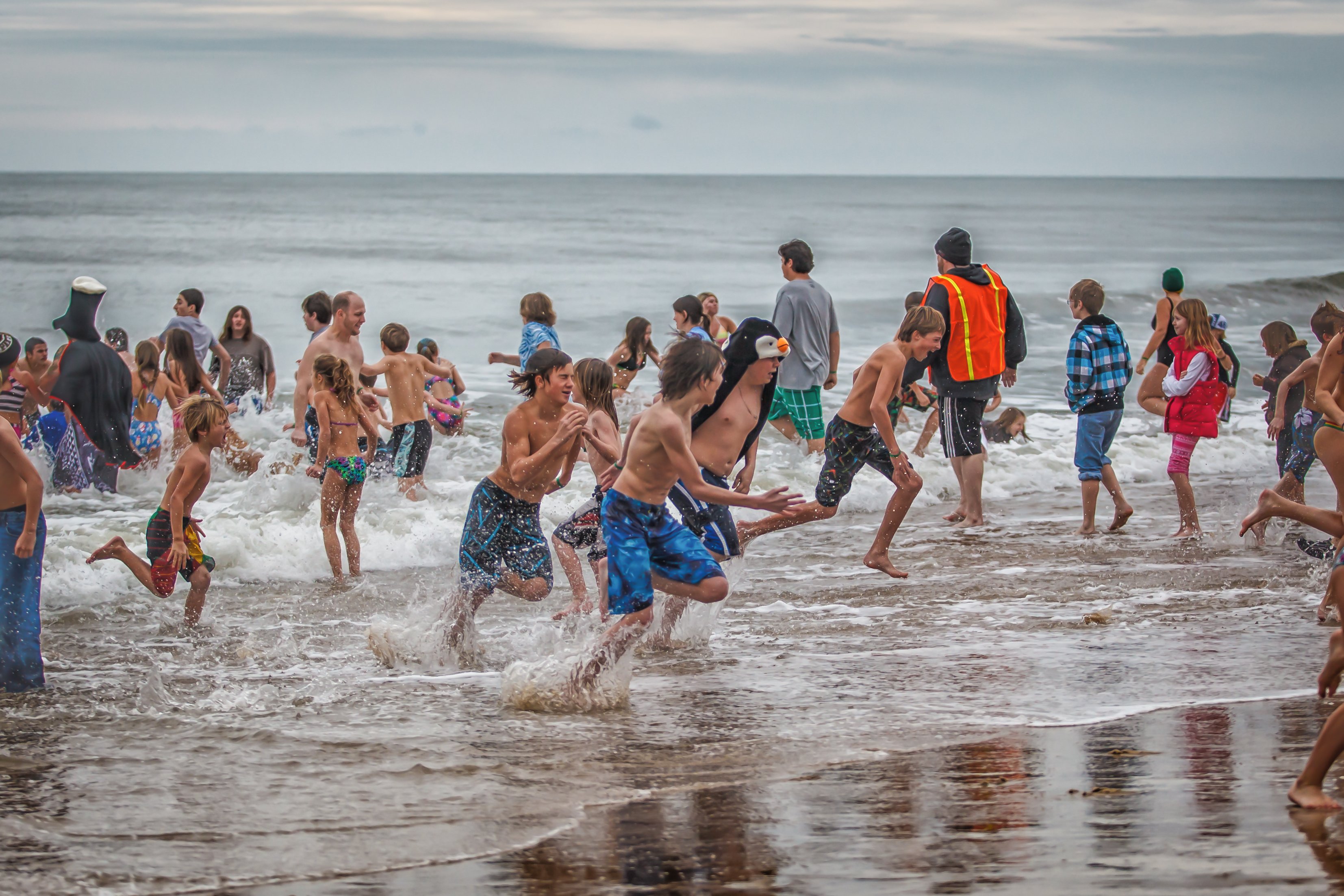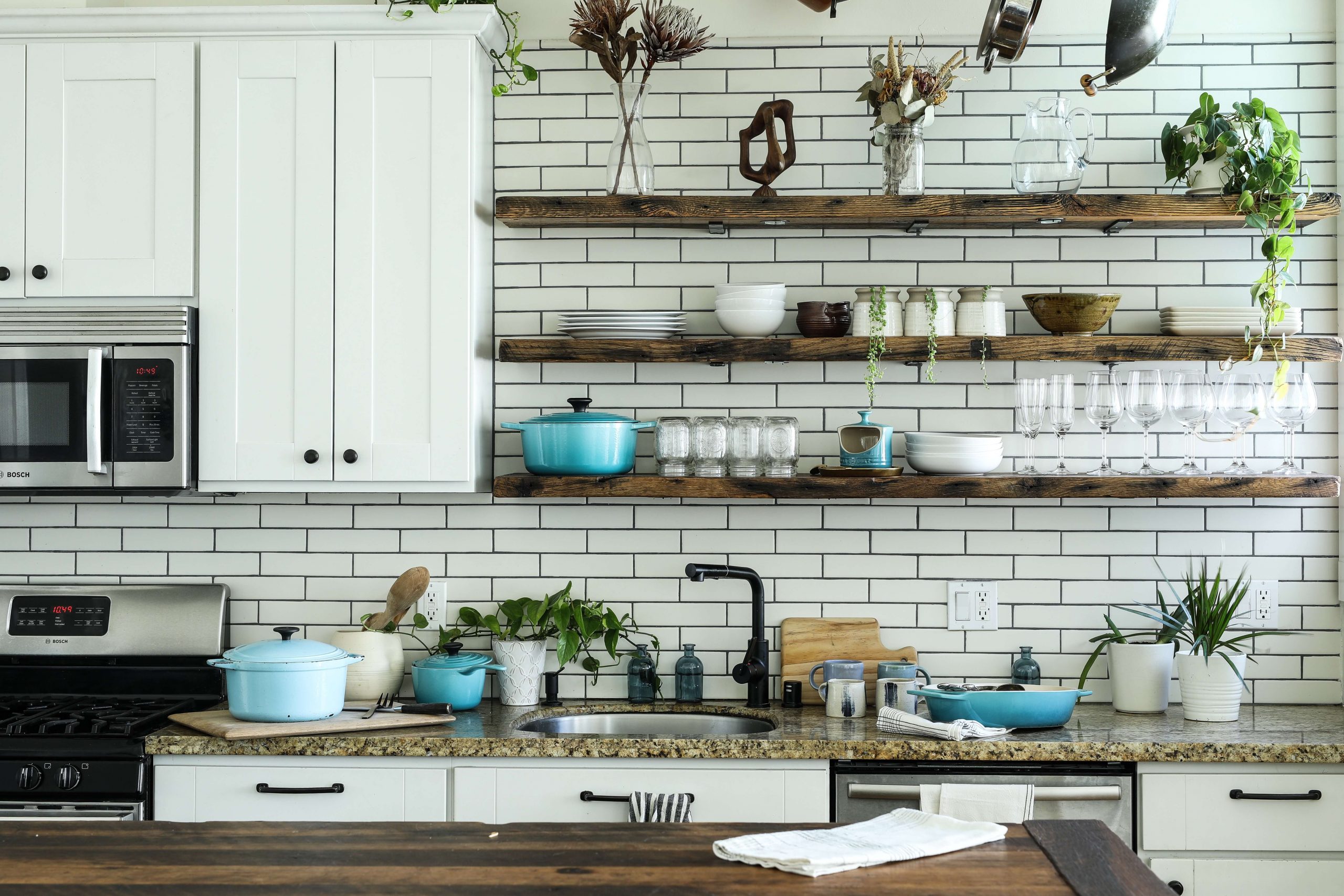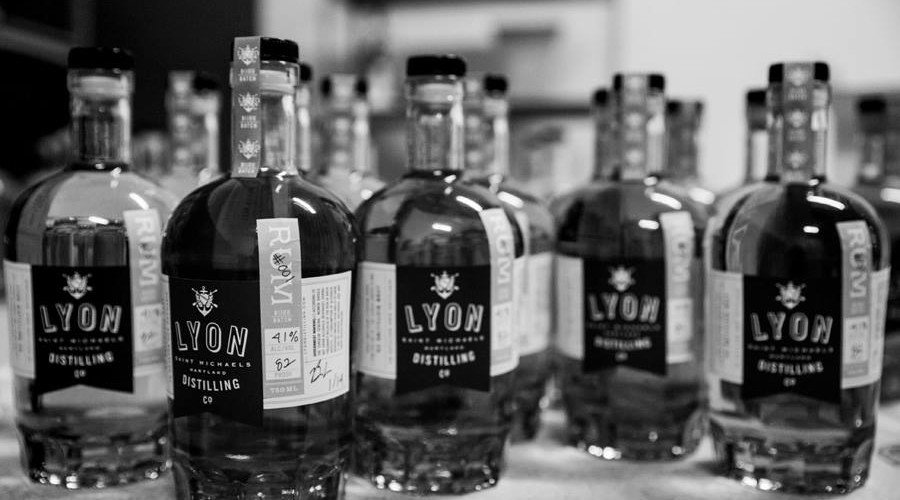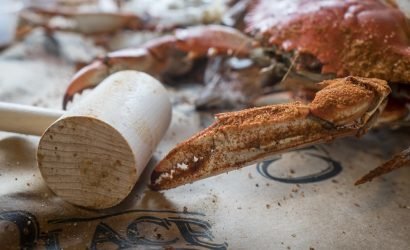We love any excuse to go Day Trippin’ to St. Michaels, so when we got an invite to take a tour and enjoy a tasting at the quaint Eastern Shore town’s latest addition, Lyon Distilling Company, we jumped at the chance. A Sunday afternoon in St. Michaels learning about the history of rum and modern day rum making? Yep, we were all over it.
The 6,000 square foot space that was once the home to the town’s flour mill is located just off the main strip of downtown St. Michaels, appropriately positioned around the corner from Eastern Shore Brewing and the St. Michaels Winery. After meeting the dynamic duo that run the entire operation – Jaime Windon and Ben Lyon – we dove right in with tastings and questions. Knowing very little about the rum business to start, we were eager to learn the ropes and find out more about what spurred Jaime and Ben to dive head first into the craft distilling business.
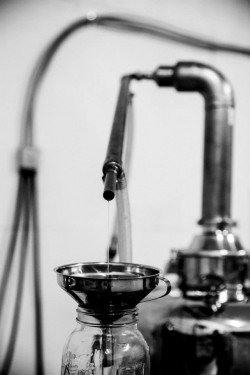 “We do everything here,” explained Jaime, “which is unique. We are the only distillery here in Maryland that produces on site.” In fact, every single bottle that comes out of the distillery is crafted by Ben. While Ben is in charge of the distilling process and giving tours, Jamie tackles marketing and communications as well as manning the front of the house. Aside from the printing of the labels, the entire business is on display, including the rum making process in the back rooms. “This is the only place in the entire state where you can see this all happening,” said Jaime.
“We do everything here,” explained Jaime, “which is unique. We are the only distillery here in Maryland that produces on site.” In fact, every single bottle that comes out of the distillery is crafted by Ben. While Ben is in charge of the distilling process and giving tours, Jamie tackles marketing and communications as well as manning the front of the house. Aside from the printing of the labels, the entire business is on display, including the rum making process in the back rooms. “This is the only place in the entire state where you can see this all happening,” said Jaime.
Lyon Distilling Company first came to fruition roughly 2 years ago when the couple decided to move to St. Michaels to run a bed and breakfast for a few months. While falling in love with the town, Jaime and Ben also found themselves kicking around the idea of opening a craft distillery. One thing led to another and before they knew it they were elbow deep in paperwork and renovations. Doors officially opened the weekend after Thanksgiving, and they’ve been furiously bottling rum ever since.
So why rum? “The reason I like rum is its wide open,” explained Ben. “I like that freedom. There are so many different types of rum and its always different depending on the method.”
“And it’s fun” added Jaime. “Rum doesn’t have a lot of restrictions.” Unlike vodka, which is the least flexible liquor flavor-wise, the only requirement for rum is that it is distilled from sugar. The rest is up to the creativity, methods and flavors chosen by the distiller. Plus, according to Jaime, “rum is truly America’s spirit. Rum was the first spirit to be distilled in any large quantity back in the 1700s. Before whiskey, there was rum.”
As we continued our tour into the back of the distillery we found ourselves facing what looked to be a mad scientist’s laboratory. However, instead of creating Frankenstein, Ben spends his days experimenting with and crafting rum. The fermenting process occurs in stainless steel barrels. “The 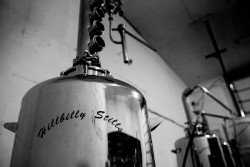 fermentation of rum is so rapid and fast…the rum ferments so aggressively that it ferments in just two to three days,” explained Ben. The rum reaches temperatures upwards of 90 degrees while fermenting before it is pumped into stills. Ben chose custom copper stills, which maintins the impurities and flavor elements that enhance the final product. “You really do get fuller flavors in a natural way,” said Ben. As a result, very little additional flavoring (if any at all) needs to be added to the final result.
fermentation of rum is so rapid and fast…the rum ferments so aggressively that it ferments in just two to three days,” explained Ben. The rum reaches temperatures upwards of 90 degrees while fermenting before it is pumped into stills. Ben chose custom copper stills, which maintins the impurities and flavor elements that enhance the final product. “You really do get fuller flavors in a natural way,” said Ben. As a result, very little additional flavoring (if any at all) needs to be added to the final result.
In the rum making process, there are three parts to come off of the still: the head, the heart and the tail. The head is the first to come off the still, and averages around 180 proof. The heart comes next, at about 160 proof. “When you’re distilling,” explained Ben, “you want to isolate that transition between the heads and the hearts.” Another key component in the process is knowing when to stop running the still. “That’s really the heart of the game…throughout the run the percent of alcohol decreases. At 50 percent it really starts to smell funky so I stop running the still around 60 percent alcohol” Ben went further to explain that while the alcohol is still perfectly good at 50 percent or less, you really start to lose the rich flavors. Ben has also opted to age his aged rums in small barrel format, which provides a shorter aging process. “We found that after only three months in these barrels, it is incredibly smooth.”
Currently, Ben and Jaime are still waiting for their distributors permit, which will allow them to sell 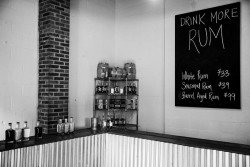 their bottles of rum to local restaurants and liquor stores. Until then, “we are essentially a booze factory,” said Jaime. “We make liquor and we can do tastings but we’re limited. We can only give a certain amount to each person.” Currently, the three options are white rum, a seasonal rum and the barrel aged rum.
their bottles of rum to local restaurants and liquor stores. Until then, “we are essentially a booze factory,” said Jaime. “We make liquor and we can do tastings but we’re limited. We can only give a certain amount to each person.” Currently, the three options are white rum, a seasonal rum and the barrel aged rum.
Despite plans to eventually distribute and expand, Jaime and Ben plan on maintaining the small employee base (currently they are the only two employees), staying local (everything is local or American made), and remaining 100 percent hands on. “Ben always wants to have his hands on every step of the process. No matter how big we may or may not get,” said Jaime.
With the explosion of craft breweries in recent years, one can imagine that the craft distillery movement is next. “Craft distilling in general is on the cusp of going huge,” said Jaime, pointing out that in past five years, over 300 micro-distilleries have opened across the country. In Maryland, Lyon Distilling Company is the only distillery producing handcrafted spirits in house.
The tasting room at Lyon Distilling Company is open daily. For more information, visit their Facebook page at www.facebook.com/LyonDistilling.
**All photography is courtesy of Lyon Distilling Company**
